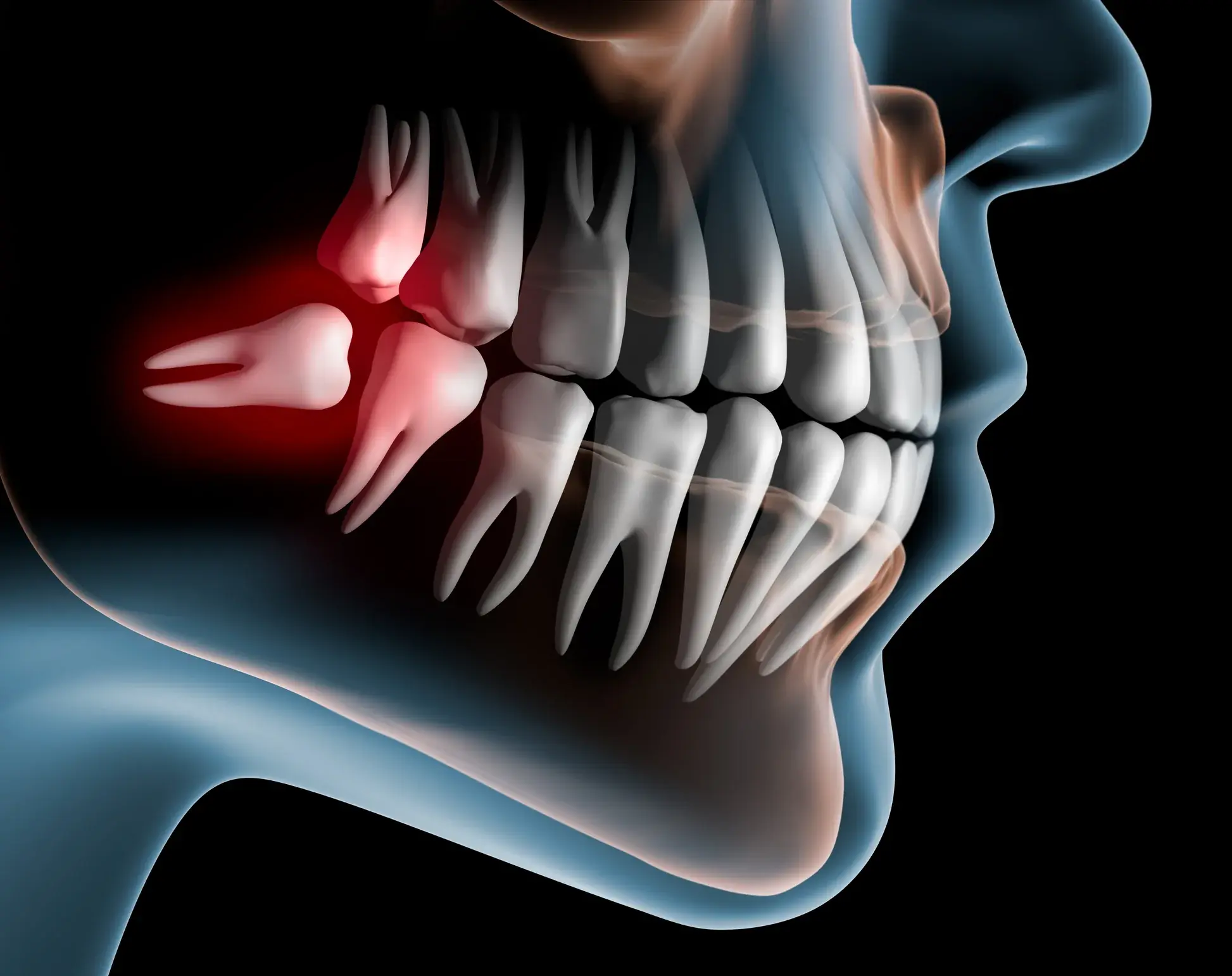If you’ve noticed some discomfort or swelling at the back of your mouth, you might be asking yourself — When do wisdom teeth stop growing? Honestly, it’s a question that many of us have as we go through this rather awkward stage of dental development. Whether you’ve already started feeling your wisdom teeth coming through or you’re just curious about when they might.
Understanding their growth timeline is important for more than just comfort — it’s crucial for your overall oral health. Wisdom teeth, or third molars, don’t come with a one-size-fits-all timeline. They emerge at different ages, often around the late teens or early twenties, and they don’t always follow the same growth patterns for everyone.
If you’re like most people, this sudden mouth intrusion can lead to a few questions: Is this normal? What does it mean for your oral health? And when do wisdom teeth stop growing? Well, I’ll be walking you through all the essential timelines and offering a look at what to expect as they slowly take their place in your mouth.
1. What Are Wisdom Teeth?
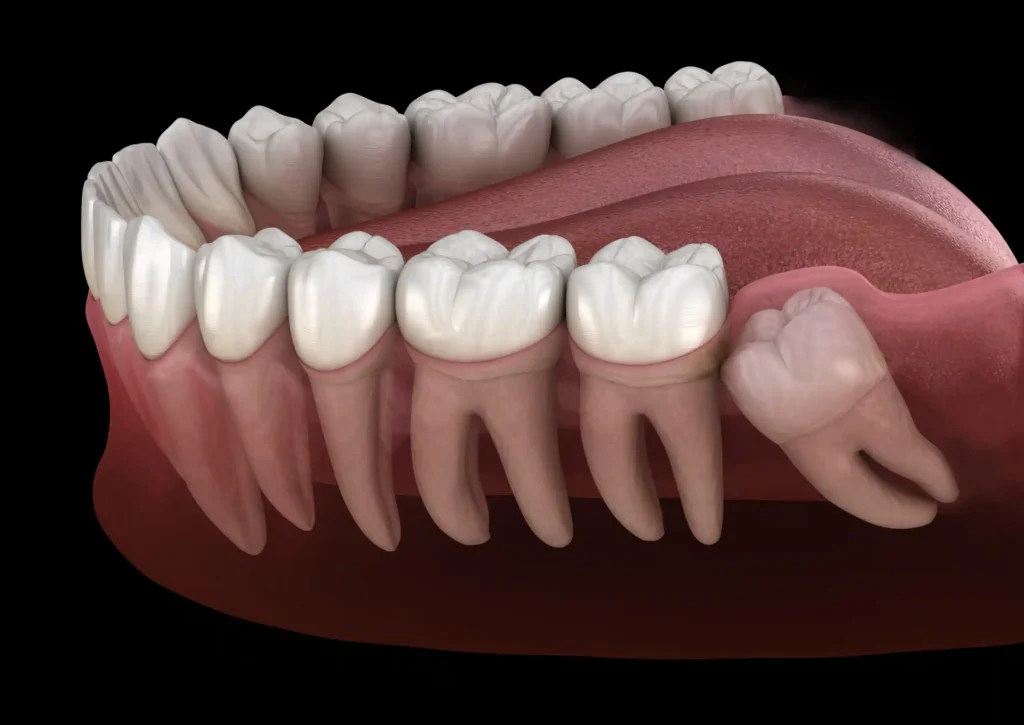
Wisdom teeth are the third set of molars at the back of your jaw. Some people have all four, while others may have fewer or none at all. These teeth usually emerge in your late teens or early twenties, though some people may not get them. So, when do wisdom teeth stop growing? Typically, they stop once fully erupted, usually by age 25. Known as “third molars,” they were once vital for chewing tough, raw foods, but today, they’re mostly an evolutionary leftover.
Why Do We Have Wisdom Teeth?
Evolutionary, wisdom teeth were useful for our ancestors, who had larger jaws and needed extra teeth for grinding tougher foods. But here’s the catch — our jaws have gotten smaller over time, and in modern humans, wisdom teeth are now often unnecessary. Still, they hang around, causing a bit of confusion for a lot of us.
Honestly, it’s a bit wild, right? To think that we’re walking around with these relics from a different time. These days, wisdom teeth aren’t particularly essential. A lot of people end up needing them removed, but more on that later.
2. When Do Wisdom Teeth Begin to Grow?
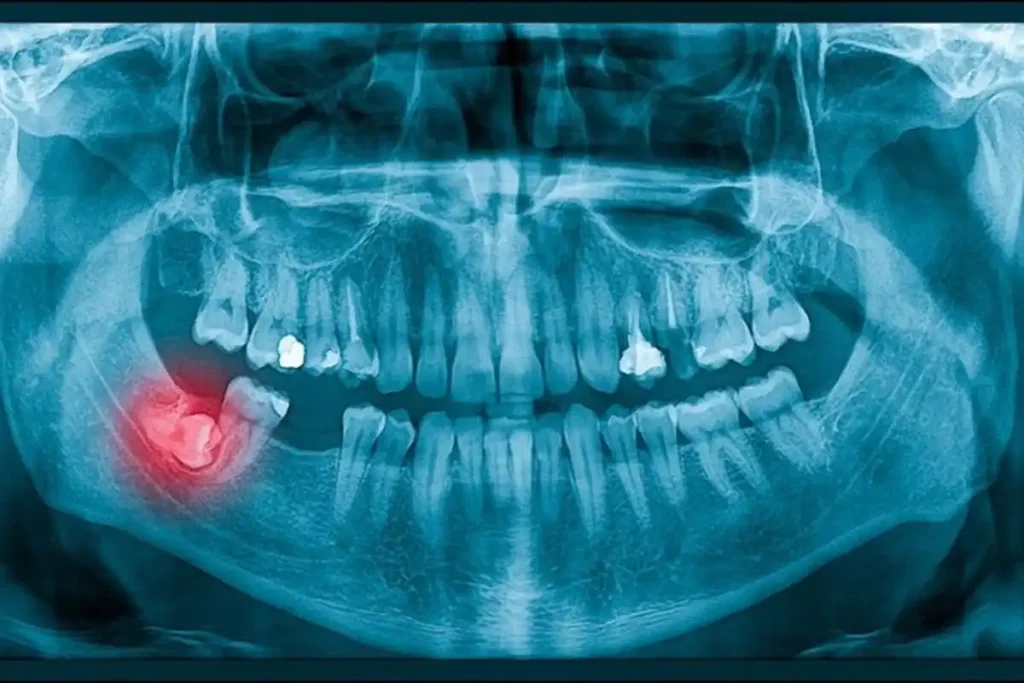
So, now that we know what wisdom teeth are, you’re probably wondering, When do wisdom teeth stop growing? They begin developing before you even realize it. The roots of your wisdom teeth start to form as early as age 7 or 8 — yes, that early! However, the process is slow, and the teeth don’t usually start making their way to the surface of your gums until later in life, typically between ages 17 and 25. This slow development can lead to some awkward phases, especially if you’re one of those lucky folks who end up with impacted wisdom teeth.
There are a few stages in the growth process of wisdom teeth:
- Initial Formation (Around Age 7-10):
At this point, the roots of wisdom teeth are forming beneath your gums, though you won’t feel any discomfort yet. Your body is simply laying the foundation for these teeth to eventually emerge. - Mineralization (Around Age 11-14):
The teeth begin to harden as they mineralize in your jawbone, preparing for eruption. You might not even notice it, but it’s happening quietly beneath the surface. - Eruption Stage (Ages 17-25):
This is when the wisdom teeth begin to push through your gums. Depending on your jaw space and alignment, this can be a smooth process or one that’s filled with discomfort (hello, swollen gums).
While some people experience discomfort or even jaw pain as their wisdom teeth grow, others may not feel a thing. There’s also the possibility that some wisdom teeth won’t grow at all, a condition that’s mostly genetic.
Pro Tip: If you’re experiencing jaw pain or inflammation around the back of your mouth, it might be an early sign that your wisdom teeth are coming in. Scheduling a dental checkup can help you stay ahead of any potential complications.
3. How Long Do Wisdom Teeth Grow?
Once your wisdom teeth start to grow, you might be curious about how long the entire process will take. Well, like many things in life, it depends. On average, when do wisdom teeth stop growing? Wisdom teeth begin to emerge between the ages of 17 to 25, but the full process can take several years to complete. This can be influenced by various factors such as the alignment of your teeth, the size of your jaw, and whether or not the wisdom teeth are impacted.
Here’s a general timeline of wisdom teeth growth:
| Age | Developmental Stage | What’s Happening |
| 17-18 | Eruption Begins | Teeth begin pushing through the gum line. |
| 18-21 | Active Growth | Wisdom teeth move closer to full eruption, causing potential discomfort. |
| 22-25 | Full Emergence | Wisdom teeth may be fully erupted or still facing complications. |
At this stage, your wisdom teeth may be completely erupted, partially erupted (which can cause issues), or still stuck under the gums. If they’re impacted (meaning they’re trapped under the gum line or in the jawbone), they may not emerge at all, or may cause complications like infections or cyst formation.
Some people find that their wisdom teeth grow fully by their mid-20s, while others experience issues well into their late 20s or even 30s. It’s not uncommon for some wisdom teeth to stop growing or remain partially erupted if there’s not enough room in your jaw. In those cases, they might not fully push through the gums or may only emerge at odd angles.
Pro Tip: If you’re in your mid-20s and your wisdom teeth haven’t emerged yet, it’s a good idea to check in with your dentist. They can use dental X-rays to see what’s going on beneath the surface.
4. 10 Key Timelines when do Wisdom Teeth stop Growing
As your wisdom teeth develop, the process can be a bit unpredictable, with some people experiencing smoother eruptions while others face complications like impacted wisdom teeth or gum infections.
Understanding the key milestones when do wisdom teeth stop growing? You better manage the discomfort and plan for any necessary dental interventions. Here’s a general breakdown of what you can expect at each stage:
| Age Range | Developmental Stage | Details |
| Age 7-10 | Early Formation | Roots of wisdom teeth start developing beneath the gums. |
| Age 11-14 | Mineralization Begins | Wisdom teeth begin to harden, but they are still buried deep in your jaw. |
| Age 16-17 | Teeth Fully Developed | Wisdom teeth roots are fully developed, ready for eruption. |
| Age 18-21 | Eruption Begins | Wisdom teeth start to push through the gums, often causing pain and swelling. |
| Age 22-25 | Full Emergence | Wisdom teeth may fully emerge, though they can be impacted or cause dental issues. |
| Age 25+ | Late Eruption/Complications | Wisdom teeth might remain impacted or cause discomfort due to a lack of space. |
These age ranges are typical for many people, but keep in mind that wisdom teeth growth can vary significantly. Some people experience earlier eruptions, while others may deal with delayed growth or impaction.
Pro Tip: If you’re under 25 and don’t notice any pain or signs of wisdom teeth, you might be lucky enough not to have them. Still, check with your dentist to monitor your third molars and avoid future complications.
5. Why Do Some People Experience Delayed Wisdom Teeth Growth?
You might be wondering: why do some people’s wisdom teeth grow later, or not at all? Well, there are a few reasons why your wisdom teeth might not develop on the usual timeline, and it mostly boils down to a combination of genetics, jaw structure, and sometimes health conditions.
Here’s a quick list of factors when do wisdom teeth stop growing?
1. Genetics
If your parents didn’t develop wisdom teeth, it’s likely that you won’t either. Our genetic makeup plays a significant role in the timing of wisdom teeth eruption.
2. Jaw Space
The size of your jaw can determine whether or not your wisdom teeth will have room to emerge. In many cases, there’s simply not enough space to accommodate the teeth, leading to impacted wisdom teeth.
3. Health Conditions
Certain health issues, like gum disease or oral infections, can affect the growth of wisdom teeth. Conditions such as periodontal disease might also cause delayed eruption, as your gums and bones may not be healthy enough to support the growth.
4. Tooth Alignment
Misalignment of your teeth can interfere with the eruption of your wisdom teeth. If your mandibular M3s (third molars) aren’t aligned properly, they might stay impacted or grow in at odd angles.
5. Trauma or Injury
If you’ve suffered an injury or trauma to your jaw in the past, it could delay or alter the eruption of your wisdom teeth. The trauma might prevent normal root development or gum eruption.
How Does Delayed Growth Affect Oral Health?
If your wisdom teeth don’t come in on time, or if they’re impacted, you might experience a variety of oral health issues. These can include gum infections, inflamed gums, or even damage to surrounding teeth. If left unchecked, impacted teeth can also cause tooth decay or contribute to the formation of cysts that can damage the surrounding bone structure.
Pro Tip: If your wisdom teeth are growing unevenly or causing pain, see your dentist. Early detection with X-rays can help prevent serious complications, like impacted teeth.
6. Can Wisdom Teeth Stop Growing Early?
Sometimes, wisdom teeth don’t follow the typical growth pattern. Instead of fully erupting, some may stop growing early or never emerge at all. It’s a situation that can leave you wondering, When do wisdom teeth stop growing? Well, there are a few key reasons why this happens, and understanding them can help you figure out what to do next.
1. Genetics
Genetic factors play a big role in wisdom teeth development. Some people simply don’t have wisdom teeth at all, while others may see only partial eruptions or early cessation of growth. It’s a weird quirk of evolution, but it’s quite common.
2. Jaw Size
If your jaw is too small, there may not be enough space for your wisdom teeth to fully emerge. This can lead to the teeth stopping their growth early, or growing in at an angle (which can result in impacted teeth).
3. Dental Health Issues
Gum infections, tooth decay, or other oral health problems can interfere with the proper eruption of wisdom teeth. If the gums or jawbone aren’t healthy enough to support growth, the wisdom teeth may stop growing prematurely.
4. Absence of Space
There may simply not be enough room for your wisdom teeth to erupt. This lack of space can cause them to stop growing or lead to impacted wisdom teeth, which could cause additional complications like gum disease or tooth impaction.
5. Inflammation or Infection
If there’s inflammation or infection around the wisdom teeth or in the gum tissues, it can halt the growth process. Inflamed gums are especially common when wisdom teeth start to emerge, and in some cases, the swelling or infection might cause early cessation of growth.
6. Treatment Options for Stalled Growth
If you find that when do wisdom teeth stop growing or aren’t growing properly, don’t panic. There are a few ways to address this:
- Dental Monitoring: Your dentist may use dental X-rays or panoramic imaging to track the progress of your wisdom teeth and ensure that everything is developing properly.
- Oral Surgery: In some cases, if the teeth are impacted or if there are signs of infection, your dentist may recommend removal. An oral surgeon or maxillofacial surgeon can remove problematic wisdom teeth, often under local anesthesia or general anesthesia, depending on the complexity of the case.
- Orthodontic Treatment: Sometimes, your dental provider may suggest orthodontic treatment to make space in your jaw if your wisdom teeth are blocked by other teeth.
Pro Tip: When do wisdom teeth stop growing or seem stuck, it’s important to consult with your dentist right away. Wisdom teeth removal can be an effective solution, but early intervention can help avoid complications like sinus pressure or tooth decay.
7. Common Issues When Do Wisdom Teeth Stop Growing
One of the most common issues associated with wisdom teeth is impaction, when the teeth are unable to fully emerge through the gums. If this happens, your wisdom teeth can become trapped beneath the gum line or in the jawbone, which can cause a number of problems. Impacted wisdom teeth can lead to discomfort, infections, and even damage to adjacent teeth.
Here are a few signs that your wisdom teeth might be impacted:
- Pain or Tenderness: This is one of the first signs that your wisdom teeth are having trouble erupting. Pain may occur in the back of your jaw and can be persistent or come and go.
- Swollen Gums or Bleeding: If your gums become inflamed or start bleeding around your wisdom teeth, it could be a sign of impaction or infection.
- Bad Breath: When wisdom teeth are impacted, they can cause gum infections that produce bad breath, also known as halitosis.
- Jaw Stiffness: Difficulty opening your mouth or jaw stiffness could indicate that your wisdom teeth are causing problems under the surface.
Here’s a quick summary of the potential complications from impacted wisdom teeth:
| Potential Complication | Description |
| Infection | Impacted wisdom teeth can trap food and bacteria, leading to infection in the gums. |
| Cyst Formation | Cysts can form around impacted wisdom teeth, leading to more severe problems. |
| Damage to Adjacent Teeth | Impacted wisdom teeth can push against nearby teeth, causing misalignment or damage. |
| Tooth Decay | Impacted teeth can be harder to clean, leading to dental caries or tooth decay. |
| Gum Disease | Infections in the gums due to impacted wisdom teeth can lead to gum disease. |
Infection and Complications
When do wisdom teeth stop growing, or do impacted infections become a real concern? As mentioned, gum infections can occur around the impacted teeth, leading to swelling, discomfort, and even fever. If left untreated, these infections could lead to periodontal disease or worse, a systemic infection.
In addition to infections, you might also deal with the development of cysts around impacted teeth. Cysts are fluid-filled sacs that can form when wisdom teeth fail to erupt properly. These cysts can damage the surrounding bone and even affect your jawbone structure over time.
Pro Tip: Regular dental exams are crucial to catch issues like impacted wisdom teeth early. X-rays can help your dentist monitor the development of your third molars and prevent complications before they become serious.
8. Wisdom Teeth Removal: When Is It Necessary?
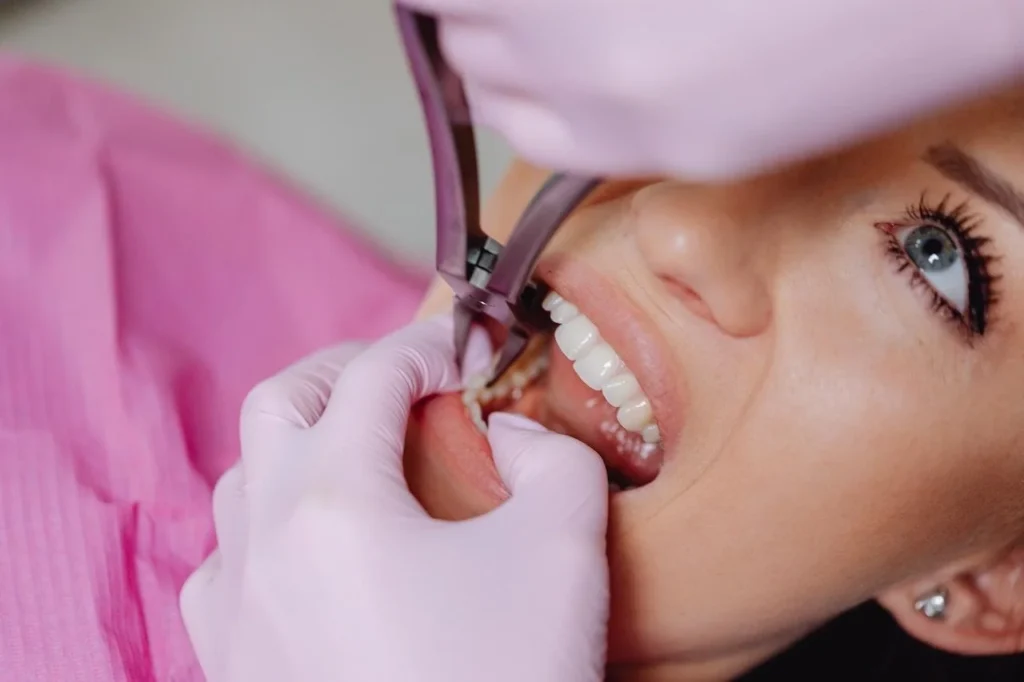
For many people, wisdom teeth removal is a rite of passage. However, not everyone needs to have their wisdom teeth extracted. It largely depends on whether they’re causing problems or posing a risk to your oral health. So, when is wisdom teeth removal necessary? Here are some common signs that your wisdom teeth may need to be taken out:
1. Pain and Swelling
If you experience persistent pain or swollen gums around your wisdom teeth or wisdom teeth stitches , it’s often a sign that they may be impacted or causing infection. Wisdom teeth that don’t fully emerge can lead to gum disease or become a breeding ground for bacteria.
2. Infection or Gum Disease
Wisdom teeth that don’t fully come through or grow at odd angles can lead to gum infections, periodontal disease, or even the formation of cysts. If these issues aren’t addressed, they can lead to more serious complications.
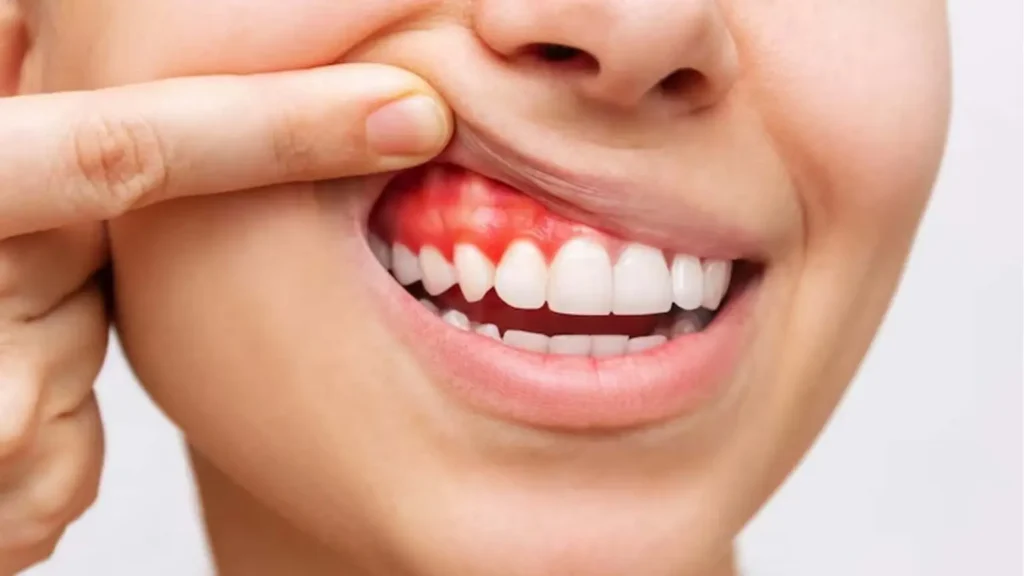
3. Damage to Adjacent Teeth
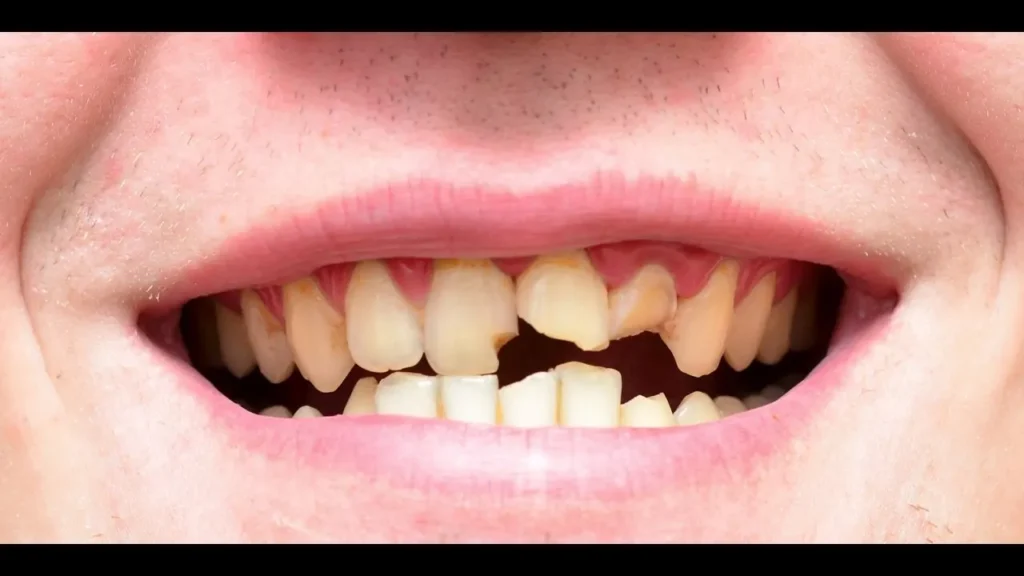
Impacted or improperly growing wisdom teeth can exert pressure on the surrounding teeth. This can cause misalignment, tooth decay, or even damage to the enamel of nearby teeth.
4. Cyst Formation
Impacted wisdom teeth can sometimes lead to the formation of cysts. These fluid-filled sacs can damage surrounding bone and tissue, potentially leading to more invasive surgeries later on.
5. Alignment and Orthodontic Treatment
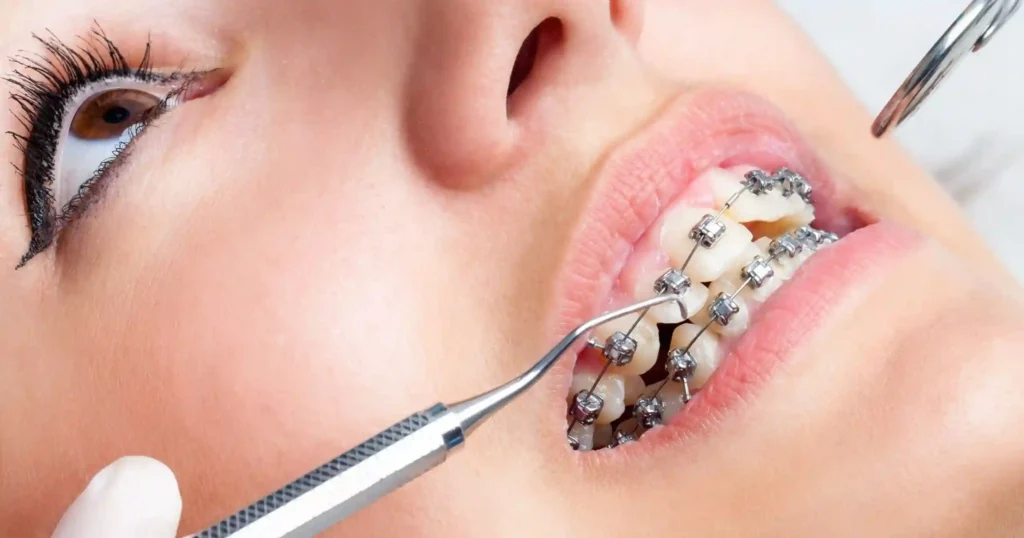
If your wisdom teeth are affecting the alignment of your existing teeth or complicating orthodontic treatments, removal may be recommended. In some cases, your dentist may suggest removing your wisdom teeth before starting braces or other dental procedures.
9. What Happens During Wisdom Teeth Removal?
The process of removing wisdom teeth can vary depending on the complexity of the situation. Here’s an overview of what to expect:
- Consultation: Your dentist or oral health professional will assess your wisdom teeth using X-rays or panoramic imaging to see how they’re positioned and determine the best course of action.
- Anesthesia: Wisdom teeth removal can be done under local anesthesia (which numbs the area around the teeth) or general anesthesia (which puts you to sleep). Your dentist or oral surgeon will decide what’s best based on the complexity of the extraction.
- Extraction: The procedure itself is fairly straightforward. The oral surgeon will make an incision in the gum tissue (if necessary) to access the tooth, and then remove it. If the tooth is impacted, it may need to be broken into smaller pieces before removal.
- Recovery: Post-surgery, expect some swelling, discomfort, and possibly bleeding for the first few days. Applying an ice pack to your jaw and following your dentist’s post-operative care instructions can help speed up recovery.
| Step | Details |
| Pre-Extraction | Consultation, X-rays, and anesthesia options discussed |
| Extraction Process | Surgical removal of the wisdom teeth (often broken into smaller pieces) |
| Post-Op Care | Swelling, pain management, ice packs, and prescribed medication |
| Follow-Up | Regular checkups to monitor healing and check for complications |
Pro Tip: If you’re nervous about removal, ask your oral surgeon about nitrous oxide to ease stress. Recovery takes 3-7 days, so follow your dentist’s advice to avoid complications like dry socket.
10. What to Expect After Wisdom Teeth Stop Growing?
Once your wisdom teeth stop growing and have fully emerged, you might be wondering how to tell when they’re completely in place. Here are some signs to watch out for:
- No More Swelling
After the initial eruption, any swelling gums or discomfort should subside. If your wisdom teeth are fully erupted, your gums should no longer be tender, and the area should be relatively smooth. - Fully Exposed Teeth
When your wisdom teeth have completely emerged, you should be able to see the full crown of the tooth. There should be no more gum inflammation or bleeding around the tooth. - Pain Relief
The discomfort caused by wisdom teeth usually decreases once they’re fully in place. If you’ve had any prior pain from impacted wisdom teeth, this should subside once they’ve fully erupted. - Healthy Gums
Your gums should be healthy and firm around the emerging teeth. If your wisdom teeth have caused infection or gum disease in the past, it’s important to keep an eye on the health of your gums going forward.
Ongoing Care for Wisdom Teeth
Once your wisdom teeth have fully erupted, it’s still essential to take care of them. Here are a few things to keep in mind to maintain your oral health:
- Regular Dental Exams: Even after your wisdom teeth have fully erupted, regular dental exams are essential. Your oral health professional can monitor any changes or potential complications, such as gum disease or tooth decay.
- Keep the Area Clean: The back of the mouth, where wisdom teeth are located, can be harder to clean. Be diligent about brushing and flossing, and consider using a water flosser to remove food particles from hard-to-reach areas.
- Watch for Problems: Keep an eye on the health of your wisdom teeth. If you start to experience jaw pain, gum inflammation, or any other discomfort, consult your dentist. In some cases, even fully erupted wisdom teeth may need to be removed later on if they cause ongoing issues.
Pro Tip: You may want to use a baking soda paste to gently clean around the emerging wisdom teeth if you’re having trouble brushing thoroughly. It’s a natural, mild abrasive that can help remove plaque and food debris without irritating sensitive gums.
Conclusion
Understanding when wisdom teeth stop growing is crucial for maintaining your oral health. As we’ve seen, wisdom teeth begin developing as early as age 7 and can emerge fully by age 22-25, although the timeline varies for each individual. Some experience early eruptions, while others may deal with delayed growth or impaction.
Regular dental checkups are essential to monitor your wisdom teeth’s development, ensuring any complications like impacted teeth or gum disease are caught early. If you’re feeling pain or discomfort, don’t ignore it—early intervention can help avoid serious issues later on.
By keeping up with good oral hygiene and staying ahead of potential pain, you’ll manage your wisdom teeth growth with fewer surprises. So, if you’re wondering, when do wisdom teeth stop growing? Keep in mind the milestones, and ensure you’re proactively caring for your teeth to avoid future complications.
Frequently Asked Questions
1. When do wisdom teeth stop growing?
Wisdom teeth typically stop growing once they fully emerge, which usually happens between the ages of 22 and 25. However, the process can vary based on genetics and oral health.
2. Why do some people not develop wisdom teeth?
Some people don’t develop wisdom teeth due to genetic factors. This is more common than you might think and can be a result of evolutionary changes in human jaw size.
3. What happens if wisdom teeth stop growing?
If wisdom teeth stop growing before fully emerging, they may become impacted. This can lead to complications like infection, pain, and even damage to surrounding teeth.
4. Can wisdom teeth stop growing early?
Yes, wisdom teeth can stop growing early if there’s not enough space in the jaw, or due to factors like genetics or oral health issues such as gum disease or infections.
5. How can I tell if my wisdom teeth are impacted?
Signs of impacted wisdom teeth include pain, swollen gums, jaw stiffness, and even bad breath. A dental exam, including X-rays, can confirm if your wisdom teeth are impacted.
6. What are the risks of leaving impacted wisdom teeth untreated?
Impacted wisdom teeth can cause infections, damage to adjacent teeth, and even cyst formation. In some cases, they may also lead to tooth decay or gum disease.
7. Do wisdom teeth always need to be removed?
Not always. If your wisdom teeth are healthy, fully erupted, and not causing any issues, removal may not be necessary. However, if they’re causing pain or complications, extraction might be recommended.
8. How long does it take for wisdom teeth to fully grow?
On average, wisdom teeth can take several years to fully emerge. From the initial formation of the roots around age 7, the teeth may start emerging by age 17 and fully emerge by ages 22-25.
9. Can wisdom teeth grow after age 25?
While uncommon, some people may experience late eruption or impacted wisdom teeth even after age 25. This could require surgical intervention if complications arise.
10. What should I do if my wisdom teeth stop growing and hurt?
your wisdom teeth stop growing or cause pain, schedule an appointment with your dentist. They can use dental X-rays to determine the cause of the pain and suggest treatment options, including wisdom teeth removal if necessary.

